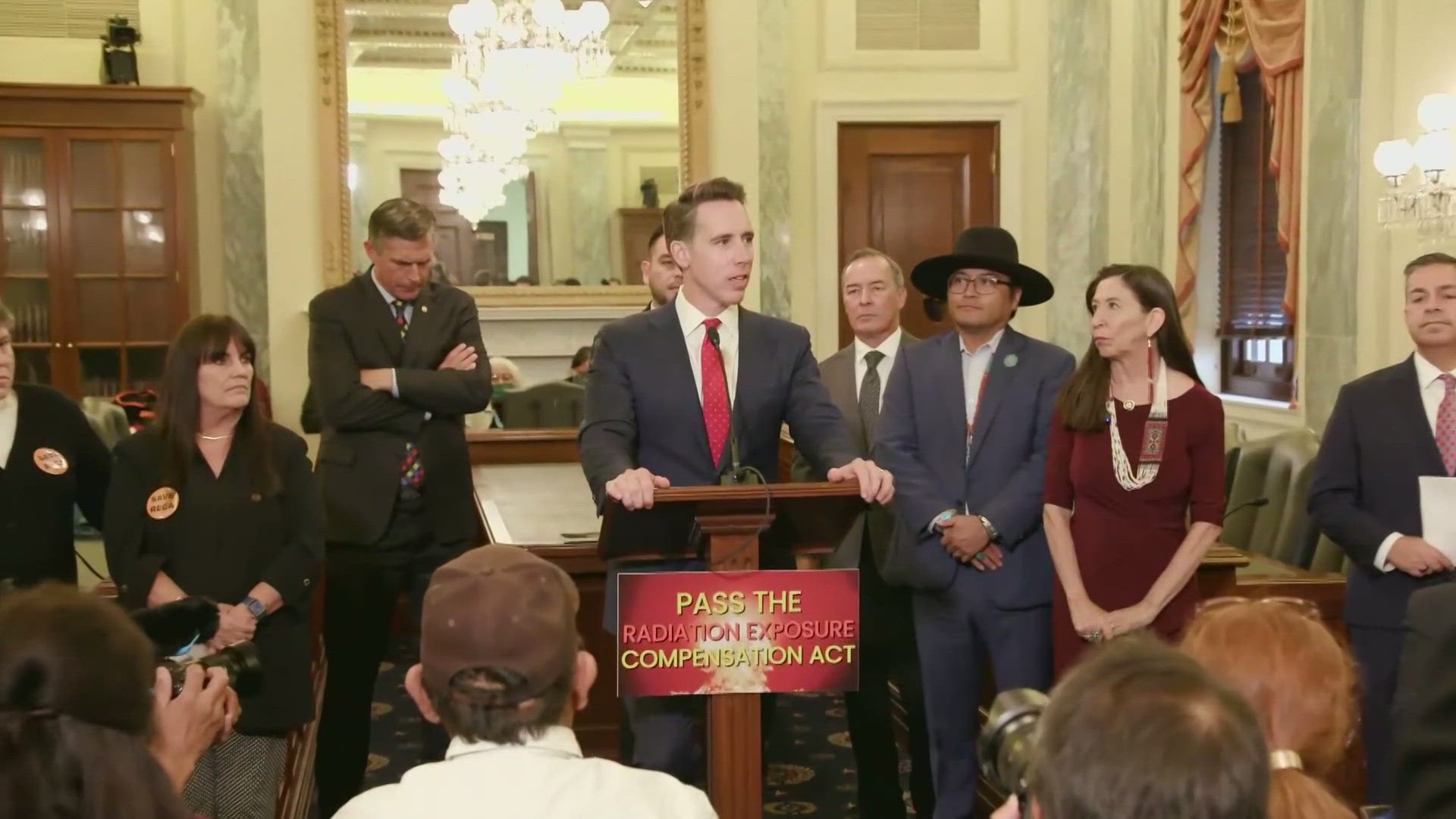MISSOURI, USA — Two St. Louis women shared their heartfelt journeys on social media, hoping to give others insight without creating discord among voters.
Voters in Missouri can expect to address the reproductive health topic under Amendment 3, which would allow legalized abortion access in Missouri until the point of fetal viability. According to the National Library of Medicine, viability is, in a medical sense, the point at which there is a reasonable probability that a fetus could survive ex utero when provided with care.
The amendment also aims to protect what it calls "reproductive freedom" and more.
RELATED: Missouri general election 2024: Voter guide for St. Louis area
These stories are listed in alphabetical order by last name.
No on 3
St. Louis mother and grandmother, Melissa Duvall, shared her experience on social media in hopes of helping others.
"It wasn't to pass any judgment in any, anyway. And that, hopefully, folks can understand that we approach this subject based on different kinds of experiences," she said.
Duvall was adopted as a baby. She said she has never met her mother or father but she is grateful to be alive.
"I've never met her. I don't know the circumstances. I know she was young. I know she was unmarried. I don't know the circumstances. I don't know if it was a willing situation, if it was a rape situation, I have no idea," Duvall shared about her mother. "My heart truly aches thinking about my biological mother's decision to give me up for adoption. She literally went back and forth for two weeks before deciding that she would give me up for adoption."
Duvall's sympathy led to agony as she recounted what her mother did for her.
Despite what she does not know, Duvall said she is grateful her mother didn't make another decision.
"I look at what I have now in terms of my children and my grandchildren and none of that would have been possible, had my biological mother decided to end her pregnancy," Duvall said. "And so there is this legacy I'm convinced that she wasn't thinking about. I can't imagine that she would ever be thinking that far ahead in that moment and yet, and yet she created this legacy that now exists. And so for me, that's what adoption represents."
Duvall wants to do more to support women who are faced with these challenging decisions. She believes sharing her story is the first step.
"Maybe my story is that more, if there's someone out there that is looking for a reason, you know, to not have an abortion," Duvall said.
She hopes to encourage women who are considering abortion to consider the agony of carrying and giving up a child for adoption as a sacrifice for a greater legacy, like the legacy her biological mother created for her.
If Duvall could choose another option on the ballot, she said her vote would be "It depends."
"But I think anybody that's probably voting no on this, then the hard question becomes, like in cases of incest and rape," she said. "My mom could have been raped."
Duvall said her faith and her mother's decision led her to vote this way but she said she knows other people who are voting yes and also have faith.
Another concern of Duvall's about this Amendment is what defines viability.
"I believe in current law, there is exceptions for when a mother's life is at risk or there's risk of serious injury to their health, but that's not necessarily really outlined and defined. So I'm sure there are people who are saying 'I don't like' that because physician discretion is there and would there be a physician who might hesitate because they are concerned that their actions might not be able to withstand, you know, legal scrutiny? So that may be the vagueness there that causes concern," Duvall said.
The language in the amendment also talks about the best interest of the mother, and Duvall said there is a range for what is classified as "best interest."
"I just know my story and my experience for me tells me I need to vote on the side of 'no,'" she said. "My blessing that I received based on the decision my birth mother made it tips the scales to the no vote. Likewise, you may interview someone else whose scales will be tipped the other way."
Yes on 3
Lillian Peters, a St. Louis mother, took to social media to share that her decision is linked to the two abortions she needed, within a year, for pregnancies she wanted.
"In 2022 I had an ectopic pregnancy that had to be treated with a chemotherapy drug and the complication there was that with the current laws in place, nobody wants to be responsible for ending a pregnancy. And so everyone wants to make sure that this is, you know, a nonviable pregnancy. And the problem with that is that it's not good enough if one doctor says it is, I had to get three doctors to get a pharmacist at a cancer center to distribute the medication, which took several hours and I had to get new blood work each time, from each doctor, even though it was all through the same system," she said.
The news was devastating for her family. Peters' was concerned she would rupture, leaving her living child without a mother.
Just months after the abortion, Peters' said they were expecting another baby with excitement. But through genetic testing in her second trimester, Peters said abnormalities with the baby's development were discovered.
"And so we went to a geneticist who did additional scans and our baby's respiratory and lymphatic system were not developing properly at all. So it was unlikely that this would ever be a live birth."
Peters braced herself for a stillbirth or a baby that would be ventilator-dependent. This time, doctors did not tell her that the pregnancy was nonviable, instead they could not say.
Doctors were unable to help the Peters family because of Missouri's abortion laws at that time.
"Abortion saves lives. It saves women's lives and I understand that people have this thought process where it's just killing babies, but it's just not reality. No one's walking in there with this malicious idea to kill a child," Peters said.
Peters made another difficult decision after learning that the closest available ventilators were in Iowa.
In 2023, Peters' mother needed ventilator treatment. She was treated in Iowa because ventilators were available there and still not available in Missouri. Peters had to drive to Iowa every other weekend to see her mother. She became frustrated with the Missouri medical system.
"In Missouri, you can't have an abortion, but also we don't even have these medical services available to keep these people alive," Peters said. Her concern is the quality of life for her child.
Peters' mother passed away. She was not with her mother when it happened.
"There is health care lacking in Missouri in several different facets between abortion and ventilator care," Peters said. "While people want to choose life, we have to have services here and we don't."
Peters said her family is still grieving.
"When people have such a hard line on pro-life, I feel like it undervalues my life. My health doesn't feel important. My ability to be a mother to my living children is unimportant," she said.
Peters called reproductive health complicated, but she is not alone.
No matter where you shade on the ballot come Nov. 5, the complications of this amendment are not so simple to unpack. Everybody's got a story, Duvall and Peters are just two of them.



